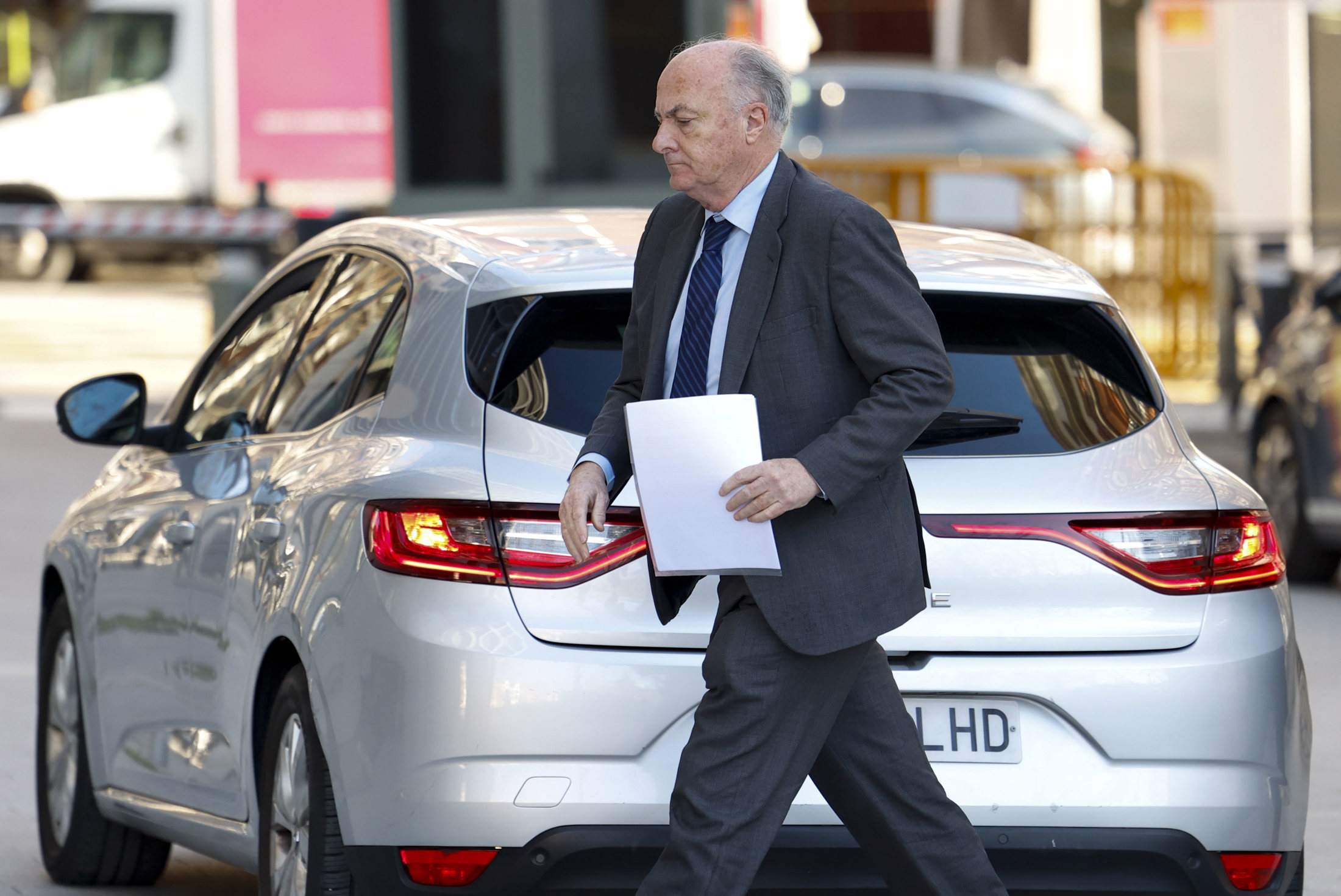Yes to the terrorism option. A chamber of Spain's National Audience court has rejected the appeal presented by businessperson Oriol Soler calling for an end to the "prospective" investigation that judge Manuel García-Castellón is carrying out in the case of the Democratic Tsunami protest platform, according to a resolution communicated this Monday. The court maintains that an investigating judge can order the proceedings it requires and even endorses inquiries being pursued for the crime of terrorism, citing the recent resolution of the Supreme Court, which agrees to investigate exiled Catalan president Carles Puigdemont and ERC deputy Ruben Wagensberg for terrorism.
The lawyer Benet Salelles - on behalf of Oriol Soler, investigated over the pro-independence Tsunami platform - asked the court to put "limits, controls and guarantees" over the investigation of Democratic Tsunami, directed by judge García-Castellón. After the resolution of November 6th, in which he named 12 people as under investigation for terrorism, the judge sought more documentation from air safety agencies, the SEM emergency services, the Mossos police, and even NATO in his attempt to find evidence build that the mass demonstration of October 14th, 2019, following the sentencing of the Catalan independence leaders' trial, allegedly endangered the public peace.
Refusal to close the case
In its response, the appeal chamber, presided over by Alfonso Guevara, explains that, in addition to halting further proceedings, Soler's defence is requesting the closing of the case because it claims that there is no evidence of crimes. The court's answer is clear: "This [defence] demand was also rejected by the Supreme Court on February 29th, 2024 ... indicating the existence of evidence that serious crimes of a terrorist nature were committed by the members of the Democratic Tsunami movement." In other words, the National Audience notes that the Supreme Court is in charge and that in the Tsunami case it has already set the path for the investigation.
Public disorder?
The criminal chamber of the National Audience has yet to resolve an appeal by prosecutor Miguel Ángel Carballo, who affirmed that the facts of the Tsunami case do not fit into the crime of terrorism, but rather, into one of public disorder and that there was no evidence against the majority of those investigated, including Puigdemont. The fact that judge García-Castellón did not wait for the response of the National Audience chamber and elevated his exposition of the case to the Supreme Court in the case of Puigdemont, which has taken over the investigation, makes it very difficult for the National Audience to go against what the higher Spanish court has now ruled.
In addition, this is the second time that a National Audience court has closed ranks with its judicial colleague. The court already replied to the lawyer Gonzalo Boye, defending Josep Lluís Alay, that judge García-Castellón was not playing politics nor did he want to put obstacles in the application of the amnesty, as has been claimed by the Junts political party.

